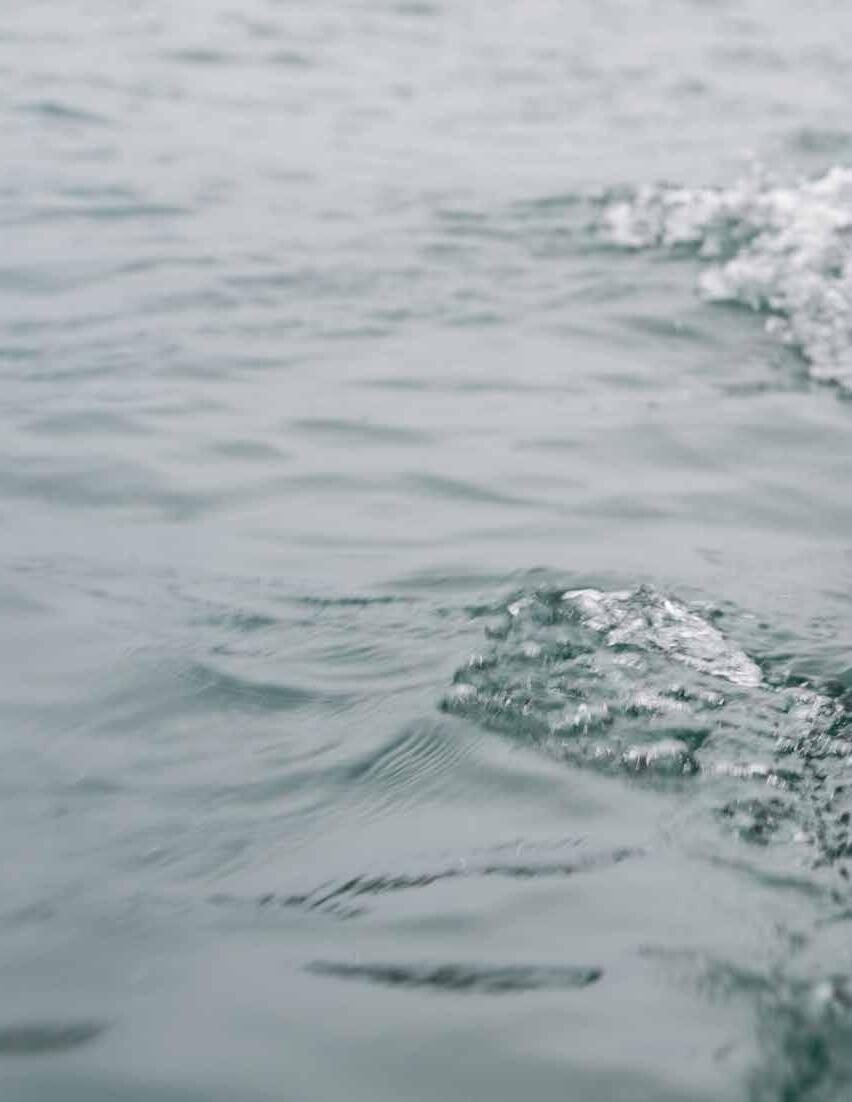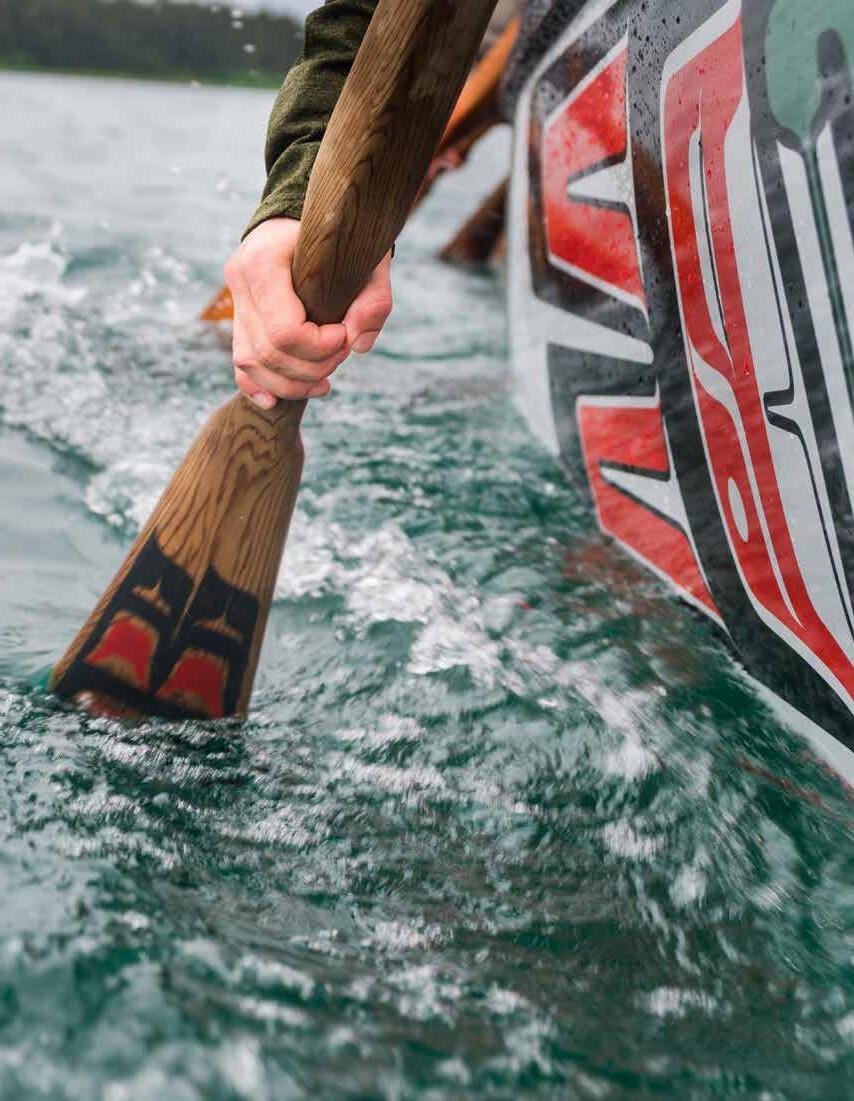

In Loving Memory
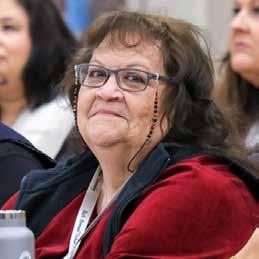
Yik-du-oo
Jerene Museth 1943–2024
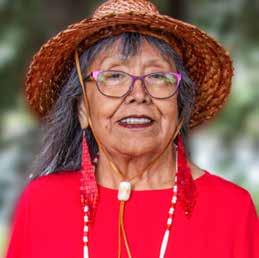
Kaaxkwéi
Leona Santiago 1950–2024
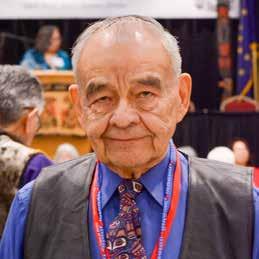
Sha.aan
James Price 1933–2025
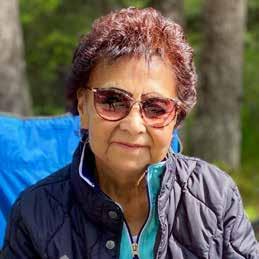
Sta.aat
Grace Villarreal 1948–2024
Tlingit & Haida dedicates the 2024 Impact Report in loving memory to our Delegates who walked into the forest while serving. Their dedication, leadership and commitment to our people and communities have left a lasting impact that will continue to inspire future generations. Their spirit and work will never be forgotten.
TABLE OF CONTENTS
President’s Message
Delegates
Executive Council
Executive Management Team
Timeline
O perations Reports
I mpacts of CARES Act & ARPA Funding
Community Statistics
T ribal Enterprises
President’s Message
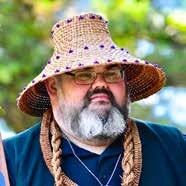
On behalf of the Central Council of the Tlingit & Haida Indian Tribes of Alaska (Tlingit & Haida), it is with great pride I share the Tribe’s 2024 Impact Report. As we reflect on the past year, we acknowledge the significant strides made in strengthening our Tribe’s sovereignty.
2024 marked the close of the American Rescue Plan Act (ARPA) funding, which was instrumental in our response to the COVID-19 pandemic. The ARPA funds provided critical resources for the Tribe to support citizens and communities, as well as build a stronger foundation to better serve tribal citizens. With the support of ARPA, we were able to respond effectively, provide financial relief, invest in infrastructure, and advance critical programs aimed at long-term recovery.
At the core of the Tribe’s work is the commitment to healing and wellness. In 2024, we reopened the doors to Haven House (T’áa Shuyee Hit) in Juneau, Alaska, a facility dedicated to helping women returning from incarceration and addiction treatment. This effort aligns with our holistic approach to healing, rooted in our cultural values. We recognize that cultural knowledge and community support are powerful tools in overcoming trauma and substance use challenges. Leading with compassion, we remain dedicated to supporting tribal citizens on their healing journey and we know culture truly heals.
To meet tribal citizens where they are, Tlingit & Haida continues to expand its presence in our communities. With offices in Anchorage, Washington, and key communities throughout Southeast Alaska, development is on track to open an office in Sacramento, California this fall. Accessibility to services and having a presence is our communities is vital in providing consistent support to tribal citizens across the nation.
Educational sovereignty is essential to empowering our people and ensuring our cultural identity is preserved and passed on to future generations. Tlingit & Haida continues to make significant strides in integrating place-based and culturally relevant education through programs such as Head Start, Haa Yoo X’atángi Kúdi, Generations Southeast, and the Alaska Youth Stewardship program. In 2024, we announced the opening of the Generations Southeast Prince of Wales Campus and have secured anchor funding through the State of Alaska’s Technical Vocational and Education Program. Tlingit & Haida stands ready to transform educational systems and serve as a regional engine that supports workforce development and community economic sustainability.
Under a co-stewardship agreement with the United States Forest Service, we are now sharing our cultural heritage with the broader public through the Cultural Ambassador program at the Mendenhall Glacier Recreation Area. The program ensures our values, language, and ancestral ties to this land are shared directly with millions of visitors who come to the Mendenhall Glacier each year.
Food sovereignty remains a central focus of our self-determination efforts. In partnership with Southeast Alaska tribes, we distributed over 170,000 pounds of traditional foods in 2024. These efforts strengthen our food systems, support local harvests, and ensure that our communities are empowered to reclaim their traditional practices of hunting, fishing
and gathering. This is vital for our long-term health and community resilience.
In 2024, we made significant progress in our Landback initiative, acquiring 457 acres near Tee Harbor and 42 acres uphill from Fred Meyer in Juneau, Alaska. The new lands will be the site of our Juneau Education Campus and a reimagined Cultural Immersion Park. These acquisitions are part of the Tribe’s broader land reclamation efforts and reflect our commitment to restoring ancestral lands and exercising our rights to govern them.
Economic sovereignty is crucial to our prosperity and providing increased support and opportunities to tribal citizens. In 2024, we expanded our economic efforts by acquiring 219 South Franklin Street in Juneau, Alaska. This location will serve as the new home for Aan Hit (Village House), a hub for not only retail and coffee, but also to foster cultural awareness and provide tribal citizen artists a space to showcase their traditional crafts.
In 2024, Tlingit & Haida hosted its first Indigenous-led Transboundary Mining Conference, uniting Tribes, First Nations, scientists, governmental officials, and advocacy groups to confront the escalating threat of mining pollution in the transboundary rivers that are vital to Southeast Alaska communities. This event stemmed from years of advocacy, coalition-building, and international dialogue, underscoring the need for Indigenous voices to lead the way in protecting these critical watersheds. Tlingit & Haida continues to push for formal consultation and tribal representation in the governance of these transboundary waters to ensure Indigenous interests are central in decisions that affect our environment.
This past year, the Department of the Interior’s Office of the Solicitor issued a legal opinion which clarified harvesting eligibility under the Marine Mammal Protection Act and affirmed there is no statutory basis for enforcing the ¼ blood quantum requirement, a longstanding barrier that excluded many tribal citizens from exercising their subsistence rights. This clarification was a significant policy victory that affirms the inherent right of our people to continue marine mammal harvests as we have done for thousands of years.
The resilience and determination of our people remain unwavering. We continue to build upon our rich cultural foundation, providing services and advocacy that honor who we are and elevates the voice of the Tribe. We are committed to a future where every tribal citizen has the resources and opportunities to thrive, and where our sovereignty is fully realized.
It is my honor to serve as your President, and I am proud of all we have accomplished together. As we move forward, I know we will stay true to our roots, uphold our values, and shape a bright future for generations to come.
Sincerely,

Chalyee Éesh
Richard J. Peterson President
Leadership through Governance Delegates
Angoon (2)
Albert Howard
Richard George
Craig (2)
Clinton Cook
Judy Helgesen
Haines (3)
James Hart
Karen Taug
Kathy Berzanske
Hoonah (3)
Frank Wright Jr.
Veronica Dalton
Amelia Wilson
Hydaburg (2)
Sidney Edenshaw
Herbert Nix
Juneau (25)
Jacqueline Pata
Ben Coronell
Louise Kadinger
Barbara Dude
Selena Beierly
Lance Twitchell
Juneau Cont.
Ken Southerland
Kathryn Lawrence
Gerald Bennett Sr.
SueAnn Lindoff
James Jack Sr.
Jacqueline Dailey
Gloria Jack
Michelle Martin
Edward Hotch
William Sheakley
Barbara Blake
Jamie Hill
Ella Bennett
Kevin Allen
Patricia Walker
Roy DeAsis
Sandra Demmert
Dionne Cadiente-Laiti
Mary Lekanof
Kake (2)
Shane Padgett
Delbert Kadake Jr.
Kasaan (2)
Paula Peterson
Eric Hamar
Ketchikan (9)
Rob Sanderson Jr.
Keenan Sanderson
Helene Simpson
Clarence Peele
Carrie Dodson
Roberta Hull
Trixie Kalkins Bennett
Rushcelle Hull
Gianna Willard Flanery
Klawock (3)
Eva Rowan
Mary Edenshaw
Janelle Friday
Klukwan (2)
Richard Jack Strong
Darrel Jerue
Metlakatla (2)
Ada Feak
VACANT
Pelican (2)
Jasmine
Mattson-Wolff
Michael Allard
Petersburg (2)
Nathan Lopez
Debra O'Gara
Saxman (2)
Candace Williams
Joseph Williams Jr.
Sitka (7)
Paulette Moreno
Seth Pook
Patricia Alexander
Gerald Hope
Harriet Beleal
Cathleen Pook
Andrew Roberts
Wrangell (3)
Luella Knapp
Christie Jamieson
Michael Hoyt
Yakutat (2)
Martha Mallott
Marry Knutsen
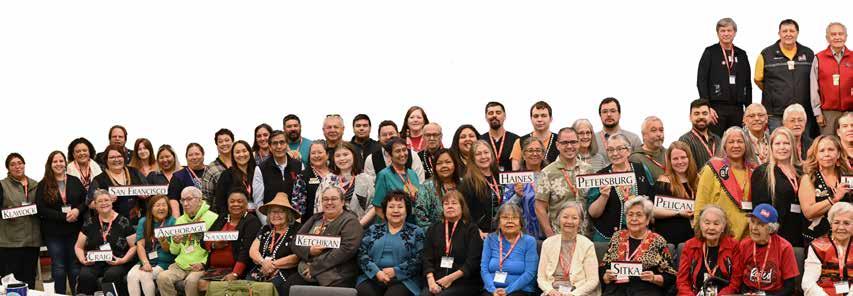
Anchorage (15)
Tasha Hotch
Nicole Hallingstad
Shirley Kendall
Alvin Edenshaw
Gilbert Stokes
Crystalyn Lemieux
Angela Michaud
Frances Andrews
Patrick Frerich
Christopher Mills
Lucretia Dennis
Marvin Adams
Mary Soots
Juliana Smith
Lynette Hinz
San Francisco (7)
DonnaRae James
William Micklin
Donavin Hannon
Heidi Parod
Emily Si’al
Christine Moliere
Troy Matthews
Seattle
(25)
Catherine Edwards
Daphyne Albee
LaVerne Wise
Monico Ortiz
Kara Peele-Mayer
Stephanie Rainwater
Janet Peele
Jocelyn Ketah
Stephanie Masterman
Cindy Pederson
Andrew Strobel
Kathryn Paddock
Karen Elliott-Lauth
James Price
Jessica Elopre
Seattle Cont.
Joey Ketah
Justice Elizah Dominy
Voshte
Demmert-Gustafson
Rebecca Thompson
Harry Watson
Joyce Alexander
Selina Joy
Wadsworth-Kahklen
Cecilia Tavoliero
Brandon Mayer
Tiffany Johnson
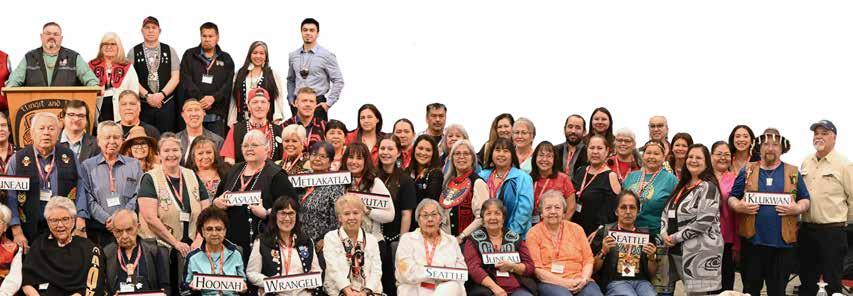
Leadership through Governance Executive Council
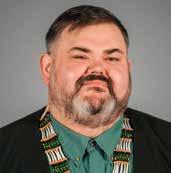
Chalyee Éesh
Richard J. Peterson President

Gu’usuwaa
Rob Sanderson Jr. 3rd Vice President
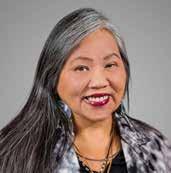
Tkl’ Un Yeik
Paulette Moreno 6th Vice President
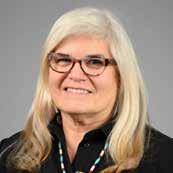
Kus.een
Jackie Pata 1st Vice President

Yaan Yaan Eesh
Will Micklin 4th Vice President
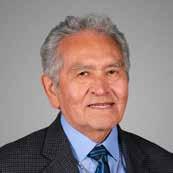
T’sa Xoo, Shaans Kadake
Skil’ Quidaunce
Edward K. Thomas President Emeritus
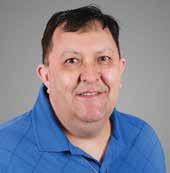
Ga’gwaath
Clinton Cook Sr. 2nd Vice President
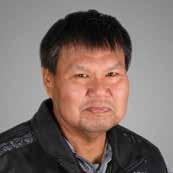
Delbert Kadake 5th Vice President
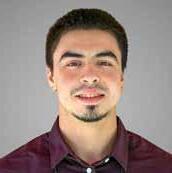
Kitgolans
Randy Estrin Emerging Leader
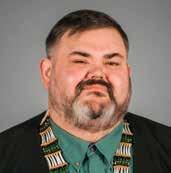
Chalyee Éesh
Richard J. Peterson President
Leadership through Management Executive Team

Gúud Xángii
Roald Helgesen Chief Operating Officer
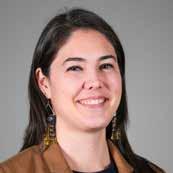
Shaa Xei di Tlaa Gaayjuwaay
Madeline Soboleff-Levy General Counsel
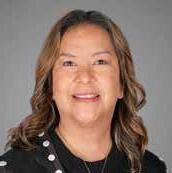
Gunaa Shaa
Charlene Robertson Chief Financial Officer
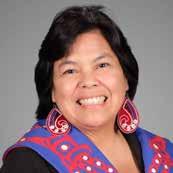
S’eenaakw’ Gail Dabaluz Deputy Chief Operating Officer
Looking Back, Moving Forward Together
2024 Timeline
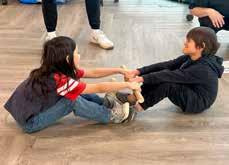
JANUARY
The Youth Wellness & Prevention program hosted a Native Youth Olympics workshop in Lynnwood, WA for youth to learn games like the one-foot and two-foot high kick.
The CBS Healing Center held an open house to share information on the Tribe’s culturally-responsive services like assessments, counseling, and crisis response.
FEBRUARY
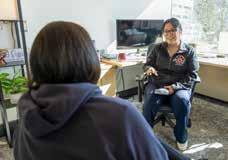
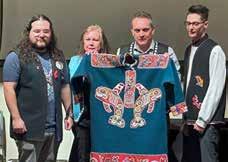
MARCH
The Wooch dakádin kéet koodás’ (Killerwhales Facing Away From Each Other Shirt), a tunic belonging to the Dakhl’aweidí (Killerwhale) clan of Angoon, AK is repatriated.
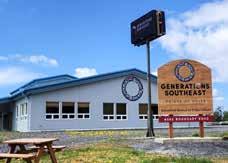
JULY
The Generations Southeast Community Learning Center’s POW Campus secures funding under the State of Alaska’s Technical Vocational and Education Program.
Tlingit & Haida stands up its Tribal Emergency Operations Center to help with the Mendenhall River flooding that impacted hundreds of homes in Juneau, Alaska.
AUGUST
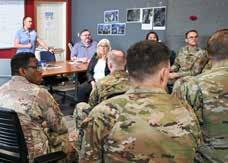
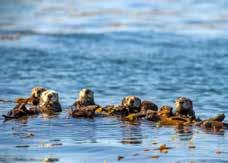
SEPTEMBER
Tribal consultation held with U.S. Fish & Wildlife Service to clarify Alaska Native harvesting eligibility requirements under the Marine Mammal Protection Act (MMPA).
The Cultural Ambassadors program launches bringing more cultural awareness and education to the Mendenhall Glacier Recreation Area (Áakʼw Tʼáak Sít’ or Sít’ Aant’aakú).
APRIL
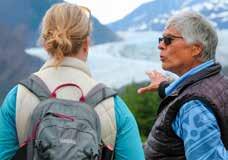
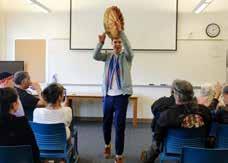
MAY
Grand opening ceremony held to celebrate Generations Southeast’s expansion to Klawock, AK to increase vocational training opportunities on Prince of Wales Island.
Two of Tlingit & Haida’s canoes participated in the Journey to Celebration, traveling over 200 natuical miles from Kake to Juneau, AK in 8 days with staff and tribal citizens.
JUNE
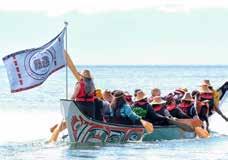
Tlingit & Haida works with the Federal Emergency Management Agency to help people impacted by the August Mendenhall River flooding in Juneau, AK to apply for federal aid.
OCTOBER
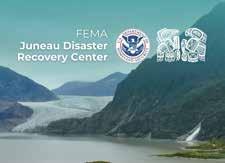
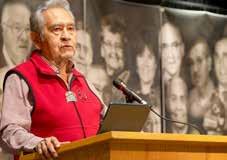
NOVEMBER
Native American Heritage Month celebrated by recognizing Southeast Alaska Native leaders featured in Hall of Fame book compiled by President Emeritus Edward K. Thomas.
Signing ceremony held to celebrate and recognize historic Indian Nations agreement with the Washington State Department of Children, Youth, and Families.
DECEMBER

Upholding Our Mission & Vision Values in Action Through Service
The Tribe’s mission to preserve sovereignty, enhance economic and cultural resources, and promote self-sufficiency and self-governance is reflected in its robust organizational structure and community impact. With more than 50 programs and services, the Tribe employed 567 individuals in 2024, of which 80% were Native hires and 70% are Tribal citizens. This commitment to native employment underscores the Tribe’s dedication to self-sufficiency and self-governance. Additionally, the Tribe operates 10 enterprises that contribute to economic growth. Tlingit & Haida serves 21 communities, reaching over 38,000 tribal citizens, a 2% growth compared to 2023. These efforts collectively enhance the Tribe’s cultural and economic resources, ensuring the preservation of its sovereignty and the well-being of its citizens.
The Tribe’s dedicated teams work tirelessly to provide a wide range of programs and services to tribal citizens. These teams are composed of highly-trained professionals who are committed to improving the quality of life for tribal citizens through serviceoriented and community-focused approaches. Their efforts ensure the Tribe’s mission is not only upheld but also actively promoted in every aspect of community life.
Preserve our sovereignty, enhance our economic and cultural resources, and promote self-sufficiency and self-governance for our citizens.
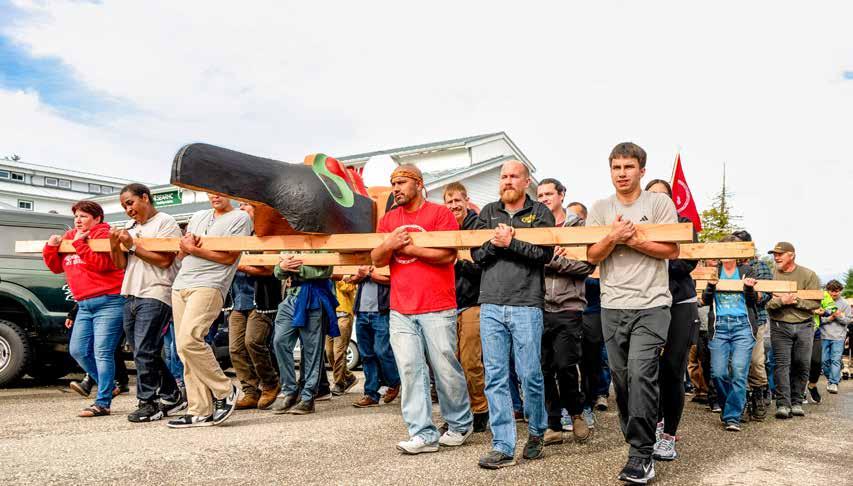
Restoring Traditional Homelands
Reclaiming our traditional lands is more than just regaining our identity—it is about restoring a connection to the land and perpetuating Tlingit & Haida. Through continued efforts to reclaim and steward our traditional lands, we reinforce our rights, revitalizing communities and securing resources for future generations.
Every acre recovered strengthens the Tribe’s ability for self-governance, enhances economic opportunities and upholds a deep relationship we all have with the lands. By reclaiming and protecting traditional homelands, we can build a future where Tlingit & Haida people thrive, Tlingit & Haida traditions endure and sovereignty is upheld.
Tlingit & Haida will break ground on new early education buildings in Craig and Klawock this spring. This is the result of a strong partnership with Klawock Cooperative Association and Craig Tribal Association. The collaboration reflects a shared commitment to investing in our children’s future and strengthening communities.
These new facilities will provide wraparound services, ensuring that families have access to comprehensive support, culturally grounded learning and high-quality early childhood education.

Exercising Tribal Sovereignty Tribal
Court
Tlingit & Haida Tribal Court is vital in strengthening tribal sovereignty and serving tribal citizens. With 2,459 cases opened and 548 hearings held last year, the court continues to provide an accessible and community-centered approach to justice. From family wellness to child welfare or civil matters, the Tribal Court ensures tribal citizens have a fair, efficient and culturally grounded legal system. Every case represents a step toward self-determination, healing and stronger tribal governance.
Child Support Collections
Child Support Orders
Tlingit & Haida Tribal Court is making a real impact in the lives of tribal citizens by ensuring children and families receive the support they deserve. Through child support orders and collections, the Tribe is reinforcing parental responsibility, reducing financial hardship, and strengthening the well-being of children.
Seeking Justice through Tribal Values
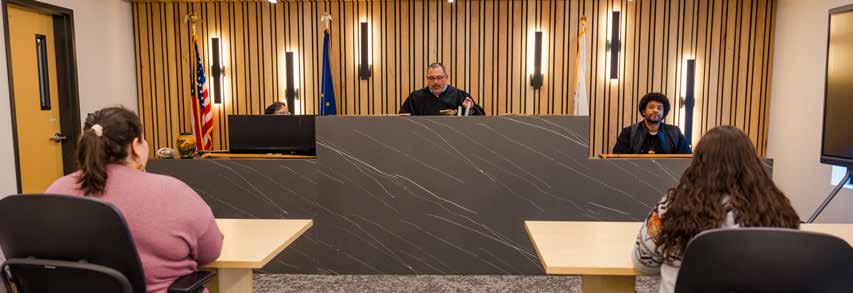
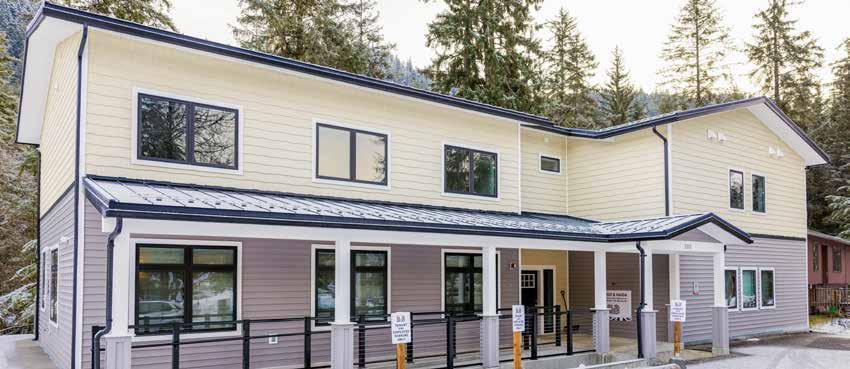
Wellness through Healing Community & Behavioral Services
To date, the Community & Behavioral Services (CBS) Healing Center has provided support to well over several thousand tribal citizens through individual therapy, group sessions, and psychoeducation events. The Healing Center remains the heart of the CBS Division’s work, serving as the first point of contact for assessing tribal citizens’ needs, crisis intervention, and referrals with proper diagnoses that open the door to necessary resources.
Programs & Services
· CBS Healing Center
· Community Advocacy Program (CAP)
Milestones
· Reentry & Recovery (R&R)
· Tribal Vocational Rehabilitation (TVR)
· In October 2024, Haven House (above), a facility for women reentering the community from incarceration or in recovery, was reopened.
· The Culture Heals platform was updated and secured in-house for use by Reentry & Recovery program participants and for training Peer Support Specialists.
· The CBS Healing Center was awarded a one-year certification from the Commission on Accreditation for Rehabilitation Facilities (CARF), meeting internationally recognized standards committed to quality improvement.
Native Hire Rate
Employees by State (567)
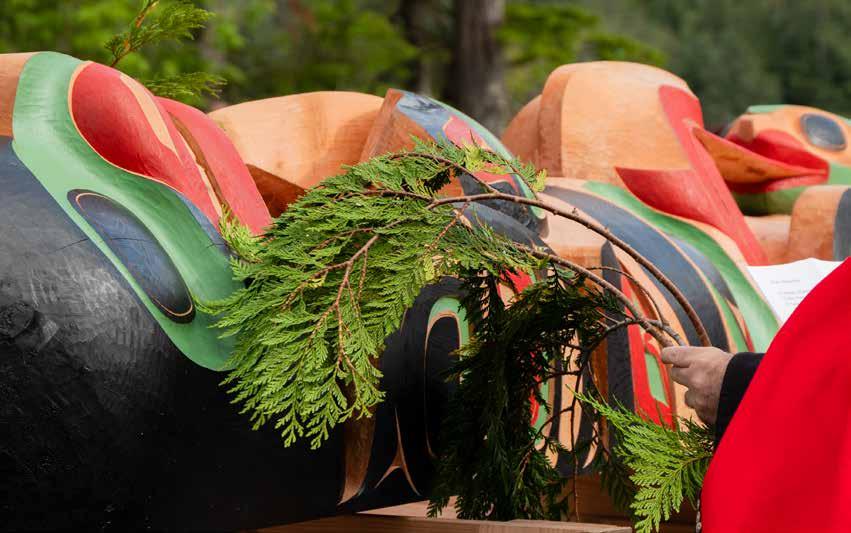
Sovereignty Through Workforce Empowerment
Tlingit & Haida continues to assert and exercise its sovereignty through selfdetermination, economic development, and workforce empowerment. Sovereignty means more than self-governance—it is about building sustainable systems that support tribal citizens and communities. One of the key expressions of sovereignty is the Tribe’s commitment to Native hire.
Tlingit & Haida prioritizes hiring tribal citizens and other Alaska Natives and American Indians across its departments, programs, and enterprises. This Native hire policy upholds tribal sovereignty and invests directly in the strength and resilience of tribal citizens. By offering employment opportunities, the Tribe empowers individuals to contribute to their communities, develop professionally, and support their families. Employee development is a cornerstone of this strategy. Tlingit & Haida fosters an environment where training, mentorship, and career advancement are accessible and encouraged. Whether through education support, internal promotions, or skillbuilding workshops, the Tribe is dedicated to growing leaders from within.
This integrated approach—sovereignty in action, Native hire, and employee growth— creates a cycle of empowerment. It ensures tribal citizens are not only beneficiaries of services but active participants in shaping the Tribe’s future. As Tlingit & Haida grows, so too does the vision of a self-sustaining, culturally grounded, and economically strong tribal nation.
Learning through Identity Educational Sovereignty
Every child deserves to see their identity and heritage reflected in the education they receive. They should recognize the beauty of their families and cultures in what they learn, empowering them to understand their origins—a rich source of strength. Our families and communities must feel that the education provided to our children celebrates and honors the brilliance of their backgrounds. Alaska is a Native place; it has always been and will always be. As we heal from past traumas, we are committed to transforming our education from within. Our mission is to nurture our educators, equipping them with a deep understanding of our customs, culture, and language, enabling them to connect with students on a more profound level.
Education sovereignty is the integration of place-based and culturally-relevant education to ultimately foster identity and community connection.
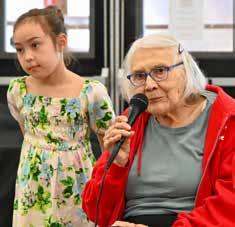
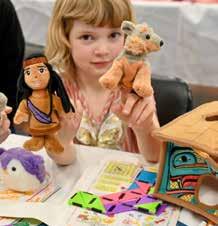
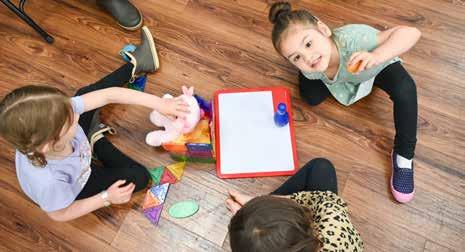
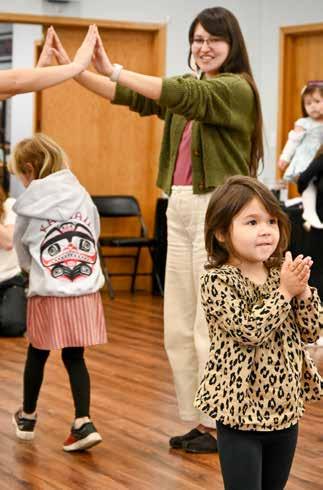
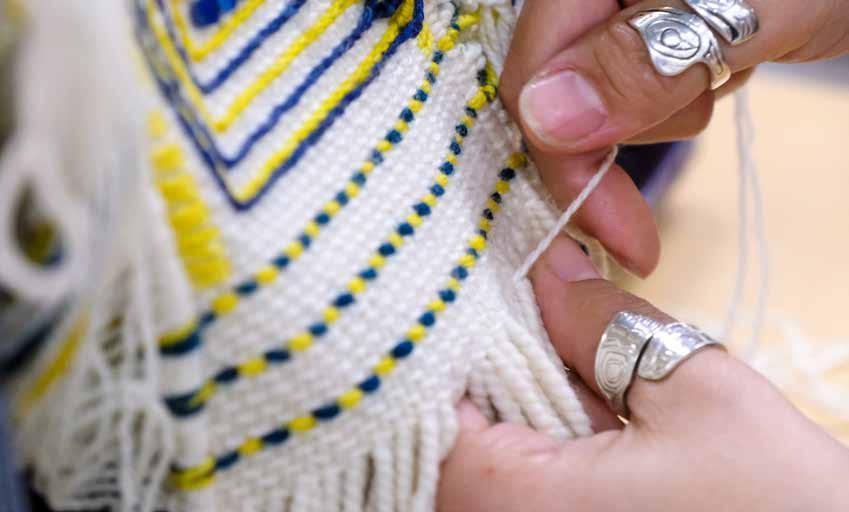
Keeping Our Ancestor Alive Cultural Workshops
The Indigenous Trades department promotes language revitalization and arts programs through collaboration with Elders, language scholars and educators, culture-bearers, artists, universities, and community partners to maximize impact. Offering virtual and in-person workshops by master artists and cultural practitioners in a variety of artistic practices, the goal is to provide cultural opportunities to all tribal citizens to ensure our languages and ways of life continue.
The classes aim to preserve and revitalize the rich heritage of our people, fostering a deeper connection with traditions, language, and practices. These classes offer a multifaceted approach to cultural education, supporting individuals of all ages in strengthening their identity and community ties.
Impact on Participants:
• Cultural Reconnection and Identity Building
• Language Retention and Revitalization
• Preservation of Traditions
• Strengthened Community Bonds
Holding Each Other Up Public Safety
In 2024, Tlingit & Haida strengthened its commitment to public safety, emergency preparedness, and community resilience. From responding to the Mendenhall River flood to addressing the opioid epidemic and enhancing workplace safety, the Tribe achieved transformative milestones. These efforts reflect a comprehensive approach that integrates cultural values, strategic partnerships, and innovative solutions.
Through investments in training, technology and leadership development, Tlingit & Haida has built a strong foundation for addressing current challenges and preparing for future needs. These accomplishments highlight the Tribe’s unwavering dedication to safety, sovereignty, and the well-being of its communities.
Highlights
· Created two Regional Public Safety Officer positions to provide direct oversight and support for Village Public Safety Officers in Southeast Alaska. These roles enhanced leadership, improved service delivery, and strengthened response capabilities in remote areas.
· Implemented a Volunteer Emergency Responder Training Program funded by a $1.1 million grant, equipping tribal citizens with advanced disaster response skills to address emergencies effectively.
· Held three Community Emergency Response Team (CERT) training classes and 11 CPR/First Aid training sessions, empowering 85 participants across Tlingit & Haida communities.
· Partnered with regional and local agencies to integrate cultural values into emergency planning, ensuring that disaster response strategies reflect the Tribe’s unique needs and perspectives.
· Hosted a second statewide conference on opioid prevention, treatment and community resilience strategies and delivered more than 1,100 Narcan kits to 35 communities, providing a critical tool for preventing overdose deaths and empowering local responders.
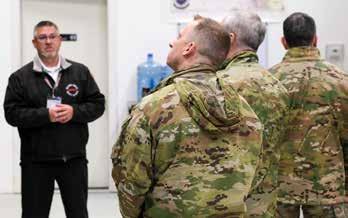
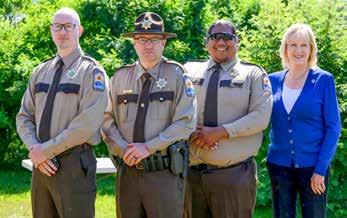
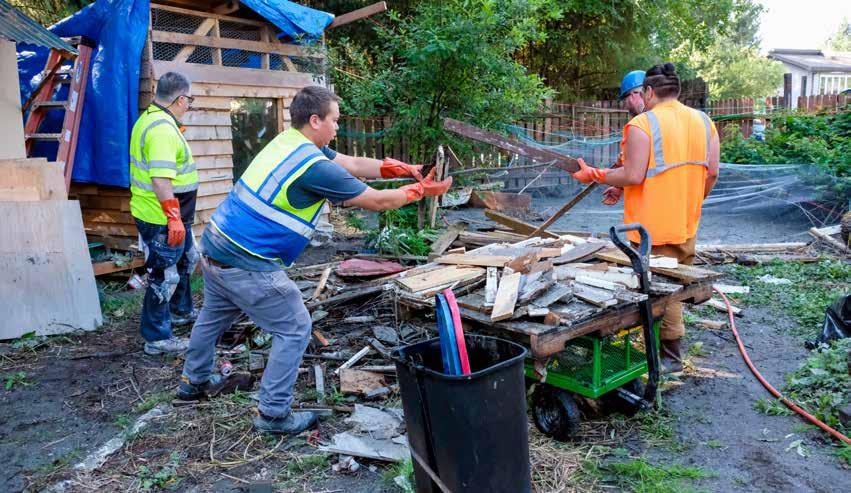
Juneau Flood Response
When the Mendenhall Glacier ice dam broke on August 5, 2024, it sent 1.5 billion gallons of water rushing down the Mendenhall River.
The river crested at 15.99 feet and flooded more than 300 homes, including the homes of several tribal citizens.
Tlingit & Haida stood up its Tribal Emergency Operations Center to respond to the need. The Tribe’s Southeast General Contractors crews deployed to the impacted area, along with staff from Tlingit-Haida Regional Housing Authority, KIRA, Level Construction and McGraw Construction. Altogether, the Tribe had 65 staff working in the field, along with 20 National Guard members deployed from Anchorage.
The teams spent days pumping out standing water, removing debris and tearing out soaked drywall and insulation. The Tribe opened the Elizabeth Peratrovich Hall as a shelter for displaced families.
The response shows the Tribe’s leadership in disaster response both for tribal citizens and the greater Southeast community.
We Are People of the Tides Canoes (Yaakw or Tlúu)
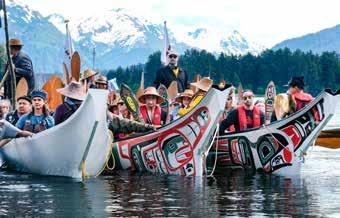
In early 2023, Tlingit & Haida purchased three canoes, Yaakw (Lingít) or Tlúu (Xaad Kíl), for cultural and tribal programming. The Tribe envisioned three designs – two to bring balance and represent our moieties (raven and eagle) and one to celebrate our tribal citizens. All designs honor the history and legacy of our people’s connection to the ocean, inside passage waters, and tides.
Two of the canoes made their first voyage as part of the 2024 Canoe Journey to Celebration. They traveled from Kake to Juneau, Alaska, over 8 days and more than 200 nautical miles with 33 canoe paddlers, including tribal citizens and employees.
Being on the water can be one of the most freeing experiences. When you close your eyes, you’ll hear the same sounds that our ancestors heard. Floating on the water without distractions allows you to fully immerse yourself in the environment.
Our vision is to integrate our culture to help heal people’s struggles with recovery and addiction. Owning our own canoes brings us closer to helping individuals find their identity, which can help fill the gaps we may have felt were missing.

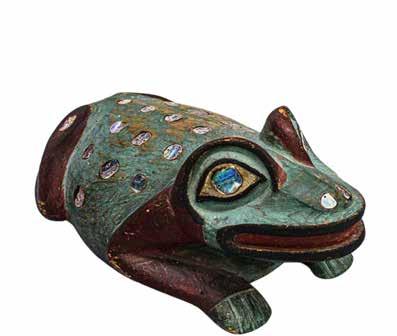
Our Ancestor Belong Home Repatriation
The Cultural Resources program plays a vital role in reclaiming sacred and culturally significant objects, ensuring the protection and preservation of our heritage. The program repatriates objects of cultural patrimony, sacred and funerary objects, and human remains in accordance with the Native American Graves Protection & Repatriation Act of 1990 and the National Museum of the American Indian Act of 1989. These acts allow federally recognized tribes to repatriate items from museums and federal agencies.
Consultations Held
· Hood Museum of Art (Hanover, NH)
· Rhode Island School of Design (Providence, RI)
Repatriation Highlights
· Evansville Museum (Evansville, IN)
· Indiana University Museum (Bloomington, IN)
· The Frog Clan Helmet (above) from the Hudson Museum at the University of Maine at Orono was returned to Wrangell, Alaska. It was “brought” out in September 2024 at a Kiks.ádi khoo.éex’.
· The Salmon Hole Box Drum was repatriated from the Hudson Museum at the University of Maine at Orono and returned to Klukwan, Alaska.
· The Kadashan Cane (far right) from the Oakland Museum of California was returned to Wrangell, Alaska and will be “brought out” at a ceremony soon.
Learning that is Place-Based Education Initiatives
Juneau Education Campus
In 2024, Tlingit & Haida purchased 43 acres in Juneau, Alaska to develop a 12-acre education campus. As we look to expand the Tribe’s educational ownership, the campus has the potential to enhance education delivery. The return on this investment is a new generation of students graduating from an education system built for Native people by Native people. The campus will be a multigenerational learning space, bringing the youngest learners and Elders together. Tlingit & Haida is eager to create the space for our tribal citizens to return to traditional methods of teaching and healing while simultaneously delivering rigorous and cutting-edge academia. Capital campaign fundraising continues..
Prince of Wales Early Education Campuses
Tlingit & Haida is also working with Craig Tribal Association and Klawock Cooperative Association to establish early education campuses on Prince of Wales Island. The partnership provides access to land and infrastructure for each campus. The early education campuses will provide a holistic solution that is a model for other education institutions on how to deliver culturally-relevant learning environments. This model can be achieved in other communities in collaboration with local IRA village tribes.
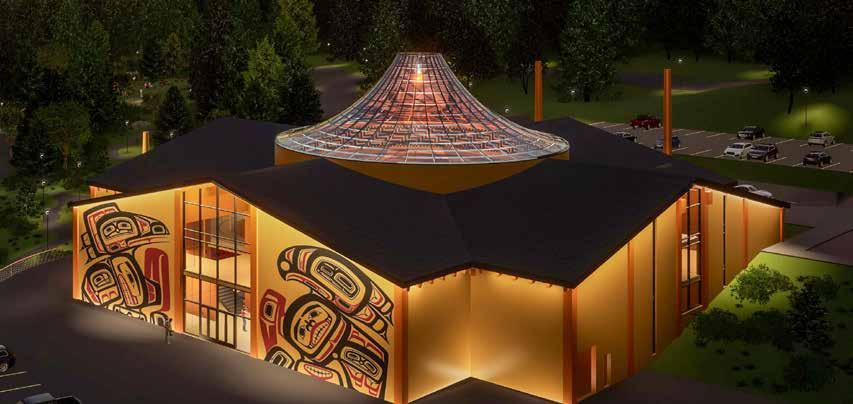
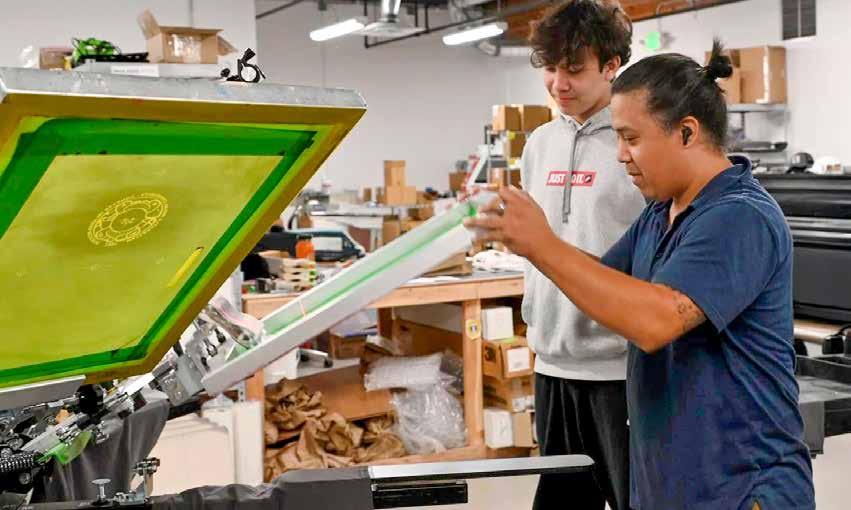
Helping Tribal Citizens Build a Strong Future Employment & Training
By addressing systemic barriers and providing personalized support, the Employment & Training (E&T) department has seen extraordinary success in helping individuals not only find jobs but also build lasting careers.
A notable achievement this year was the expansion of support for justice-involved individuals. After identifying gaps in services, E&T launched monthly workshops and dedicated a staff member to focus on the needs of R&R participants. This initiative is helping justice-involved citizens regain their footing in the workforce, empowering them to reintegrate and contribute meaningfully to their communities.
Employment & Training is not just about immediate employment; it’s about fostering long-term economic sovereignty and empowerment for Southeast Alaska’s communities. By providing individuals with skills training, industry certifications, and career development opportunities, the department is making a lasting impact. Families are being strengthened, communities are being empowered, and individuals are being equipped with the tools to succeed in the workforce. The department’s focus ensures its impact will continue to grow, helping to create a brighter future for all tribal citizens.
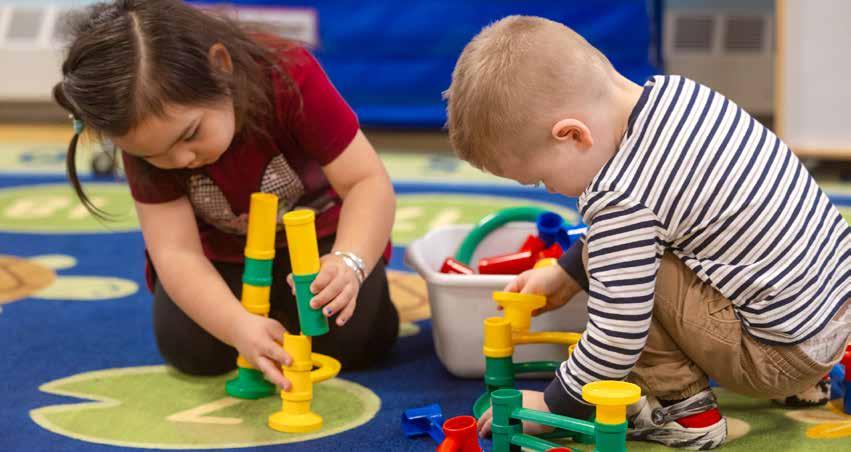
Our Children Are Our Future Early Education
The Early Education Division is committed to nurturing and empowering the identity and confidence of children, with a focus on education rooted in culture, language and tribal values. Guided by our mission to foster connections and resilience, we are working to build a resilient foundation of sovereign education that honors our heritage and strengthens our communities for generations to come.
Early Education is already making significant strides in integrating sovereignty into early education through the intentional weaving of language, culture, and tradition.
The Early Education Division encompasses five core programs: Child Care, Head Start, Little Eagles and Ravens Nest (LEARN), Haa Yoo X’atángi Kúdi Lingít Immersion in Juneau, Alaska, and Xaad Kíl Immersion in Craig, Klawock, and Hydaburg, Alaska. These programs are designed to instill cultural pride, language fluency, and a sense of belonging in every child.
In Southeast Alaska, 10 Head Start locations serve children ages three to five, where staff engage them in activities that reflect Indigenous traditions and cultural values. For example, in Wrangell, teachers led children in creating regalia from construction paper, with glitter representing beads on octopus bags and dance bibs. In Petersburg and Juneau, family drum-making nights provided every child with a drum to use in class, deepening their connection to their heritage and culture.
Tlingit & Haida has also taken important steps to revive traditional languages, addressing the generational trauma and language loss caused by boarding schools. Programs like Haa Yoo X’atángi Kúdi in Juneau offer full immersion in the Lingít language, giving children the opportunity to connect deeply with their Native tongue and cultural practices. These efforts are vital for fostering a new generation of language speakers and cultural leaders.
By investing in our language and culture, we are investing in the future of our children and communities. On Prince of Wales Island, the Tribe plans to expand Lingít language opportunities by opening three Xaad Kíl preschool immersion classrooms in Craig, Klawock, and Hydaburg, Alaska. This initiative is a critical step in the revitalization of our languages and cultural traditions, ensuring a bright future for the next generation of children.
Through these efforts, we are living our vision: to build a resilient foundation of sovereign education that strengthens our languages, fosters a deep sense of community, and supports the well-being of future generations. The Early Education Division is helping to create a vibrant, culturally rich future for the children and families of Tlingit & Haida.
Haa Yoo X’atángi Kúdi
Child Care Development
Opportunities to Thrive Youth Engagement
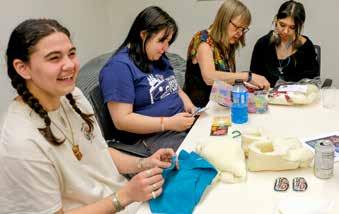
The Youth Engagement Department aims to enhance the social-emotional health, wellness, education, and employment opportunities for youth in Southeast Alaska. It achieves this through various programs:
Wayfinders: Supports Native youth aged 13–24 in transitioning to adulthood with a holistic, trauma-informed approach, emphasizing cultural connectedness, life skills, academic support, and leadership opportunities.
Johnson O'Malley (JOM): Provides supplemental educational support to Alaska Native and American Indian students in public schools, focusing on academic assistance, tutoring, and cultural enrichment.
Youth Wellness & Prevention: Offers culturally based activities and supports for all tribal youth, promoting cultural identity and connection to reduce risks and build resilience.
These initiatives collectively foster a supportive environment for tribal youth, helping them thrive academically, socially, and emotionally.
Highlights
· 369 athletes, coaches, and volunteers participated in the 7th Annual Traditional Games (Hosted by Tlingit & Haida Wellness Program and Sealaska Heritage)
· 16 rural southeast NYO teams developed with the support of Youth Wellness
· 301 JOM participants in Juneau & Wrangell
· 994 Wayfinder participants in 7 communities
· 13 Students participated in Wayfinders Retreat
· 2 Summer Youth Employees Hosted by Wayfinders Staff
· More than a dozen 3rd-5th grade tribal citizen youth participated in 2nd Annual Snow Sports Camp, with Ellen Bradley.
In 2024, the department accomplished many long-term goals. Notably, after four after four years of advocacy, Tlingit & Haida’s Wellness Administrator Kyle Worl, in partnership with Yukon North American Indigenous Games (NAIG) council members, has succeeded in compelling the NAIG council to add Arctic Sports, also known as Native Youth Olympics, to NAIG’s roster of sports. In November, Worl provided testimony to the NAIG
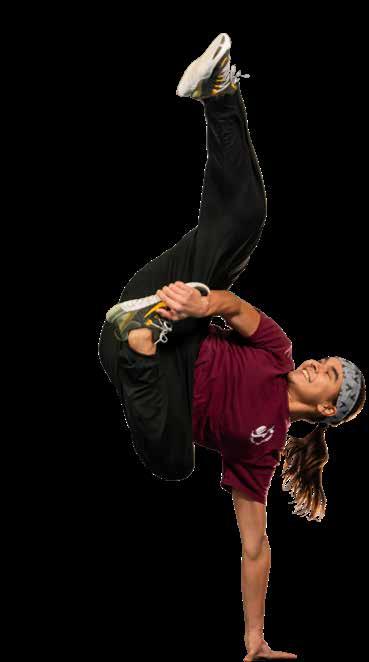
council, and the council decided unanimously to incorporate Arctic Sports into the 2027 NAIG competition as a trial sport. This inclusion of Arctic Sports means games like the Seal Hop and the One-Foot High Kick will be a part of the 2027 NAIG games.
In February, a significant achievement was the participation and testimony of numerous students at the February 22nd JSD school board meeting. They confidently expressed their values before hundreds of attendees, earning recognition from their teachers and community members for their impactful words.
Events
· Regular Compass Gatherings for Wayfinders
· Monthly Movie Nights for Wayfinders
· Wayfinders Annual Retreat
· Snow Sports Camp with Ellen Bradley
· College Tours
· Traditional Games

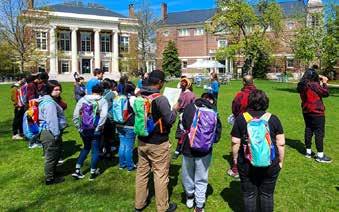
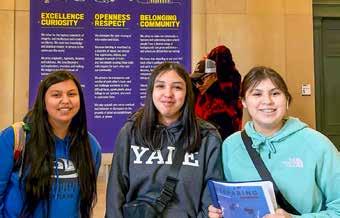
· World Eskimo-Indian Olympics
· Hosted first-ever Prince of Wales Island Native Youth Olympics Season Kick-Off
· Partnership with Indigenous trades for formline stocking & ornament making
· JOM Community Involvement Day
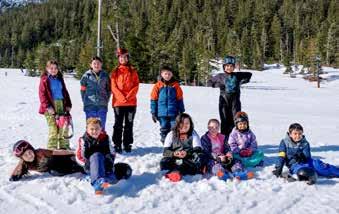
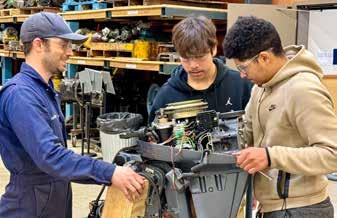
Caring for Our Land Indigenous Stewardship
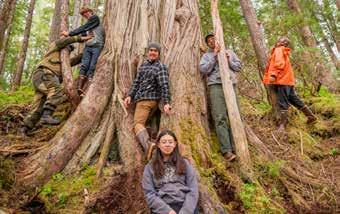
The Alaska Youth Stewards (AYS) program is a community-driven initiative that blends Indigenous knowledge with hands-on leadership training. Based in four rural Southeast Alaska communities—Angoon, Hoonah, Kake, and Prince of Wales Island— the program empowers youth to become responsible stewards, contributing to the region’s cultural vibrancy, economic prosperity, and ecological resilience.
In 2024, AYS engaged 22 youth who received training in wilderness first aid and learned to identify and survey cedar trees for cultural use. In Kake, the crew collaborated with the U.S. Forest Service and other partners on a stream restoration project at Bent Boot Creek. In Angoon, youth worked on the Kanalku Lake Trail with the Forest Service Trails and Heritage team, while in Hoonah, they monitored streams and harvested beach asparagus with local organizations.
A special pilot program also saw six youth from the Yakutat Tlingit Tribe work on local projects and later join the Hoonah crew. Additionally, all four communities hosted marine debris cleanups, collectively removing two tons of trash from Southeast’s coastline. AYS provides young people with valuable skills, teaching them stewardship through direct action and the importance of teamwork in protecting the land.
The Cultural Ambassadors program strives to celebrate Tlingit heritage while fostering a deeper understanding among visitors. In 2024, the program grew to include 10 ambassadors and one manager.
Cultural Ambassadors interact with visitors, sharing Tlingit knowledge and traditions. Under the program, displays in the Visitor Center were updated to include Lingít language, and a special exhibit was created featuring Tlingit artifacts, including a button blanket and halibut hook. In September, the Porcupine/Beaver totem pole, carved by Amos Wallace, was relocated to the Visitor Center’s main observatory, symbolizing the presence and stewardship of our people since time immemorial.
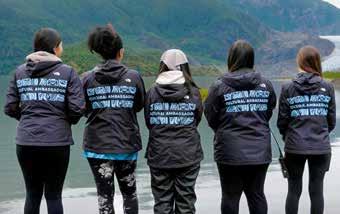
Watch Video on Season Wrap-Up
The Seacoast Indigenous Guardians Network (SIGN) integrates Traditional Ecological Knowledge into the protection, restoration and management of our homelands and waters. Each tribe in the network collects data on areas important to their communities, such as stream temperatures, sea otter populations, or salmon escapements.
The data collected by the guardians is entered into a shared database, allowing tribes to maintain their unique information while collaborating on broader ecological efforts. SIGN partners include the Klawock Cooperative Association, Organized Village of Kasaan, Yakutat Tlingit Tribe, Ketchikan Indian Community, and others. This collaborative approach ensures that Traditional Ecological Knowledge is actively applied to the stewardship of our lands.
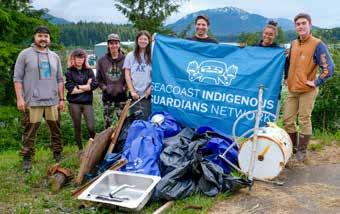
The Traditional Food Security program is dedicated to providing healthy, culturally significant foods to tribal citizens. In 2024, over 120,000 pounds of sockeye salmon and 21,000 pounds of herring roe on kelp were distributed, ensuring that families have access to traditional sustenance. New in 2025, the department also distributed 31,000 pounds of black cod to families across the Tribe’s 21 communities.
The program also emphasizes the passing of traditional knowledge. In partnership with the Indigenous Trades program, classes on sea otter hunting, preparation, and seaweed harvesting were held on Prince of Wales Island. The program also hosted culture camps in the summer, where youth learned to process seaweed, dry halibut, and prepare salmon. At the 2024 Elders & Youth Conference, staff demonstrated traditional methods for butchering deer, filleting salmon, and skinning sea otters, ensuring that future generations are equipped to carry on these practices.
By sharing knowledge and fostering cultural connections, Tlingit & Haida ensures that the traditions of our ancestors remain alive and strong for generations to come.
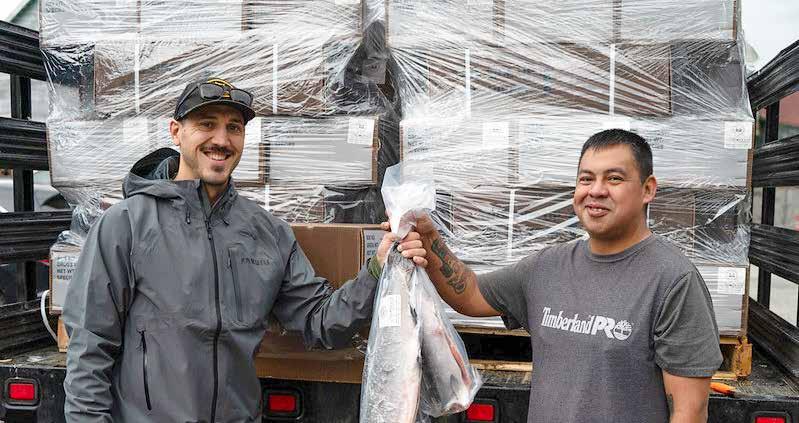
Growing Stronger Communities Environmental
Greenhouse & Composting
Tlingit & Haida’s Taay Hít (Garden House), continues the mission of getting healthy food to our communities.
In 2024, the dome greenhouse in Juneau, AK became an urban farm with the addition of outdoor growing beds, giving the Tribe more capacity to grow crops.
Staff grew and harvested 700 pounds of fresh vegetables, with half going to Smokehouse Catering for Tlingit & Haida’s Elder luncheon program.
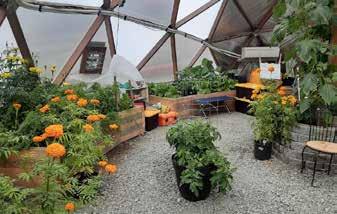
The greenhouse hosted students from Sít’ Eetí Shaanáx Glacier Valley Elementary School who helped seed and plant in the spring and then returned to harvest carrots and potatoes in the fall.
Staff hosted a berry propagation workshop in October and are currently growing a variety of native berry plants from seed inside Taay Hít. The greenhouse program will expand into a comprehensive horticulture program that promotes food security and food sovereignty while honoring our tribal values of land stewardship. Using ecological growing practices, staff will be growing both agricultural crops and native plants to support habitat restoration and food security.
Starting in spring 2025, Tlingit & Haida will launch an internal composting program using an in-vessel composting system to process food waste from its enterprises and office spaces. This enclosed system will accelerate the composting process while controlling odors and optimizing environmental conditions for decomposition. The initiative will reduce the Tribe’s environmental footprint and produce nutrient-rich compost for the Taay Hít Urban Farm. By diverting organic waste from the landfill, the program supports Tlingit & Haida’s commitment to sustainability and regenerative practices.
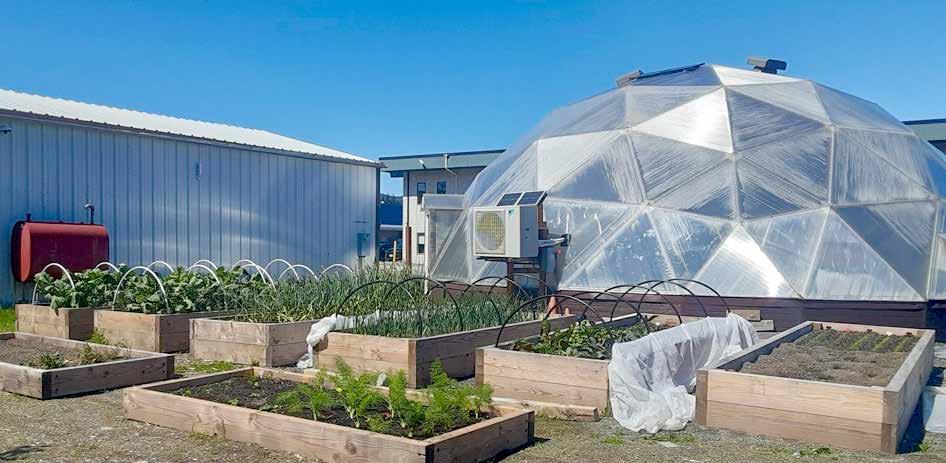
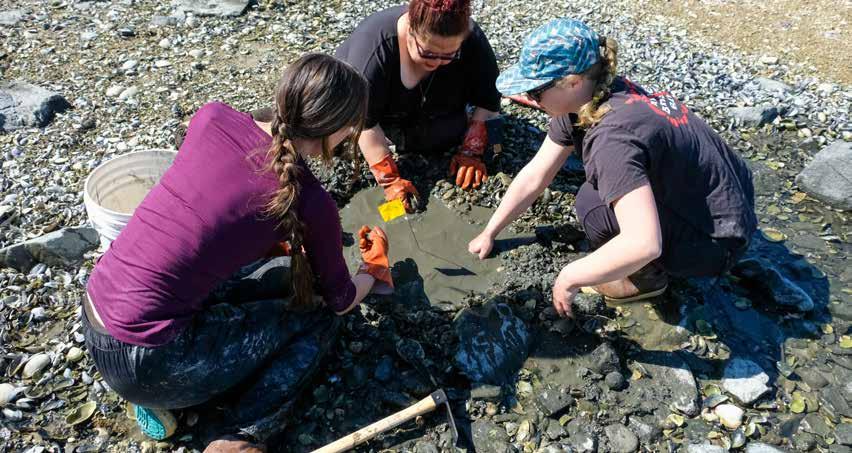
Shellfish Biomass Surveying
Shellfish have been a traditional food for generations, but accessibility is increasingly threatened by paralytic shellfish toxins.
Harmful algal blooms are naturally occurring events of rapid phytoplankton growth that cause harmful effects, including the production of paralytic shellfish toxins. Changing environmental conditions are causing harmful algal blooms to increase in intensity, duration, and frequency.
The Environmental Division analyzes phytoplankton samples for harmful algal blooms and tests shellfish for paralytic shellfish toxins. Currently, shellfish are collected from Point Louisa and the Amalga Harbor area, two important subsistence beaches in Juneau, AK where people have traditionally harvested clams.
At low tide, they pull blue mussels off rocks and dig through the sand and rocks to collect cockles, butter clams, and littleneck clams. The clams are sent to the Sitka Tribe of Alaska Environmental Research Lab to be tested for paralytic shellfish toxins. Results are then shared with the public, so harvesters can make safe harvesting decisions.
In 2024, 32 phytoplankton samples were analyzed, and 67 shellfish samples were tested.
Analysis of these shellfish samples showed that butter clams consistently had elevated levels of paralytic shellfish toxins at both beaches. In 2024, blue mussels at both beaches showed signs of a small spring harmful algal bloom, followed by a longer and more prolonged phytoplankton bloom in the fall, from September through October.
Once a year, shellfish population surveys are completed at both beaches. Clams are counted, weighted, and measured to determine the population distribution and density across each beach. Overtime, this data will help track changes in the amount, size and location of clams on each beach.
The goal of these projects is to help community members make safe harvesting decisions and understand the health of the clam populations at important subsistence beaches.
Securing Our Future Tribal Trust Fund
Tlingit & Haida exists today because of the settlement of the Tlingit and Haida Land Claims suit, which began in 1935 in the United States Court of Claims. In 1968, the court awarded Tlingit & Haida $7.5 million in compensation for lands withdrawn to create the Tongass National Forest and Glacier Bay National Monument.
With these funds, Tlingit & Haida established a Trust Fund to ensure long-term financial stability and provide lasting benefits to tribal citizens. The Trust Fund is structured to protect and grow assets that directly support Tlingit & Haida citizens and future generations.
At the end of 2024, the Trust Fund balance stood at $23,365,062, reflecting a net increase of $4,994,714 for the year, which included a note receivable in the amount of $3,304,011.
Oversight of the Trust Fund is managed by the Investment Committee, which includes the President, Chief Operating Officer, Chief Financial Officer, and two Executive Council Vice Presidents.
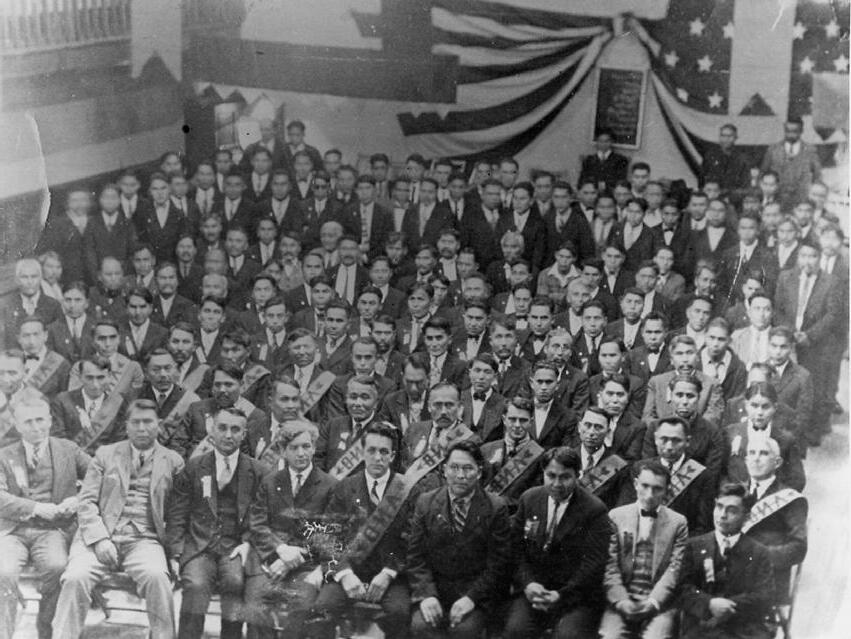
Year-End Balance: $23,365,062 $4,994,714 ↑
Tribal Citizenship By the Numbers
Tribal Citizens by Voting Community
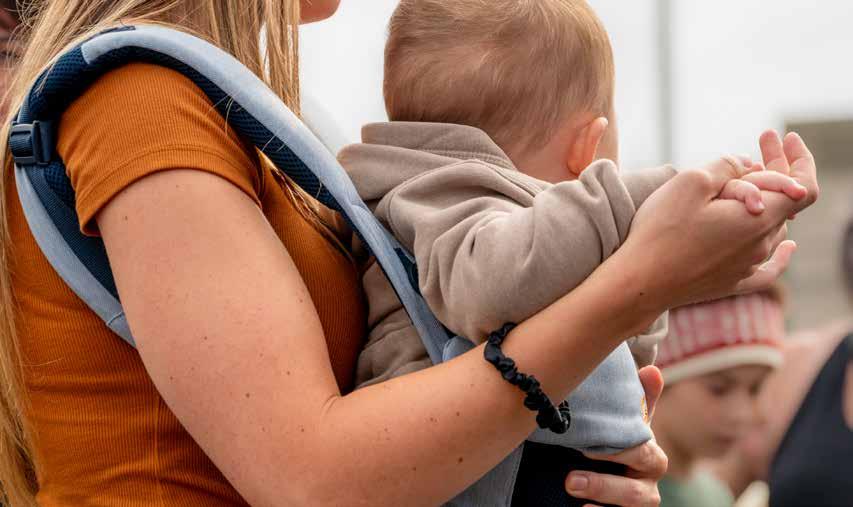
Caring for Our Future Family Services
The Family Services Division encompasses departments and programs that provide assistance to tribal citizens, families and children.
One special project for the Temporary Assistance for Needy Families (TANF) and General Assistance programs is the “Bridges out of Poverty” classes. The classes educate professionals and people in the community about systemic barriers faced by people living in poverty. By understanding the “hidden rules” of different socioeconomic classes, the framework seeks to provide strategies for supporting those in need. This includes addressing challenges in education, employment, and healthcare. Ultimately, “Bridges Out of Poverty” encourages a shift from blaming individuals to recognizing and addressing the systemic issues that perpetuate poverty.
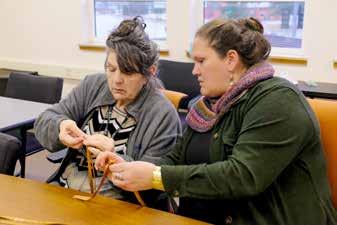
TANF has also incorporated more learning opportunities for families, hosting weekly classes that explore budgeting, cultural arts, and traditional food harvesting and processing. They’ve also collaborated with other internal programs for events like a Native Youth Olympics Christmas gathering and open house with the CBS Healing Center.
For the 2024 backpack program, TANF distributed 1,928 backpacks filled with school supplies to tribal citizen students throughout Southeast Alaska.
Tribal Family & Youth Services (TFYS) signed a contract with the State of Washington to assist in providing child welfare services to tribal citizens in Washington state. The contract is a first-of-its- kind between Washington and a tribe in another state and is heralded as a potential model for similar collaborations nationwide.
The TFYS Elders program serves more than 500 people in the Juneau area with bimonthly congregate luncheons and weekly meal deliveries. In 2024, the program served 2,438 meals, and delivered 1,696 goodie bags, 150 Thanksgiving meals and 150 Tribal Home Visiting meals for Christmas.
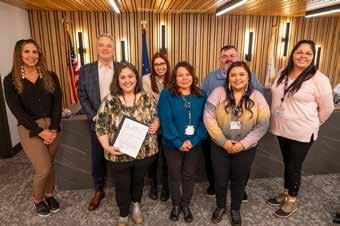
Another milestone for the program is the Elders Dance Group which has 25 members and performed 10 times in 2024. The group is a tool to help Elders affected by boarding schools. Elders have shared that using the language within the dance group is a healing activity after being punished as youth for speaking their language in school.
Tribal Home Visiting (THV) is a new program for the division. The goal is to support the development of happy, healthy, and successful Indigenous children and families through a coordinated home visiting strategy that addresses critical maternal and child health, development, early learning, family support, and child abuse and neglect prevention needs.
THV is partnering with the Alaska Native Birth Workers Community to provide this service as a part of the home visiting efforts.
The Tribal Child Support Unit (TCSU) surpassed its benchmark and distributed more than $1,200,000 in child support. TCSU is a federally-funded program that strives to ensure that all eligible tribal children receive the financial and emotional support they deserve from both parents.
Tlingit & Haida uses its tribal judicial process and regulations to establish child support obligations. There is no fee for these services, with the exception of costs related to determining paternity.
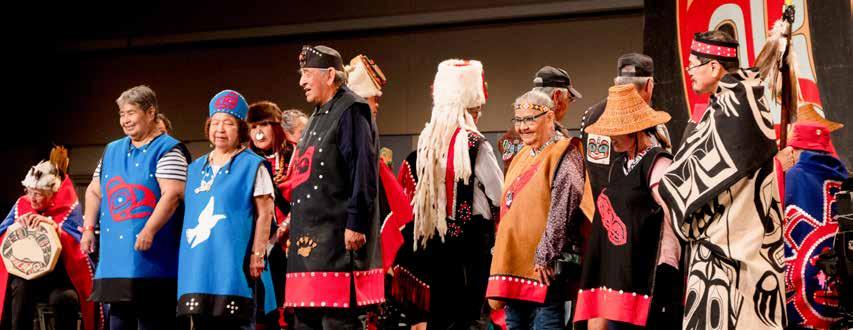
COVID-19 Recovery for Citizens & Communities
Impacts of CARES Act & ARPA Funding
The American Rescue Plan Act (ARPA) and the Coronavirus Aid, Relief, and Economic Security (CARES) Act provided critical financial relief to tribal governments, tribal citizenowned businesses and tribal citizens in response to the COVID-19 pandemic. In part, the CARES Act was for urgent crisis response, while ARPA funds supported long-term recovery.
The CARES Act, enacted in March 2020, was designed to address immediate emergency needs, offering direct financial support, business assistance, and healthcare funding.
ARPA was signed into law in March 2021 and focused on long-term economic recovery, providing broader financial aid for infrastructure, community development and direct citizen support.
This overview outlines how Tlingit & Haida allocated and utilized these federal funds for tribal citizens and communities, highlighting key investments, direct relief efforts, and the overall benefits.
I want to thank you and all of your staff for what you do. You handled the process for me with such love and patience and made me feel so very special and important.
Tlingit & Haida’s ARPA funds include $13.68 million for Child Care of which $2.15 million was distributed directly to tribal citizens and $7.65 million for Public Safety of which $1.07 million was distributed tribal citizens.
Funding Breakdown
Where Tribal Citizens Lived
During the distribution of ARPA funds, tribal citizens lived across the country, with the highest concentration in the following top ten states. The data highlights the wide reach and the importance of ensuring support and services are accessible, reaching tribal citizens where they are. Tlingit & Haida remains committed to serving all tribal citizens, both in Alaska and beyond.
Community-Council Directed ARPA Funds
Top States
Distribution
Through ARPA, Tlingit & Haida, in partnership with local community councils, directed funds to tribal citizens providing essential relief and long-term recovery support. By working closely with community councils, Tlingit & Haida ensured resources reached those in need efficiently and equitably, empowering tribal citizens and strengthening the resilience of communities.
The funds were allocated to household assistance, small business relief and communitydirected programs to help mitigate the financial and economic impacts of the COVID-19 pandemic.
Small Business & Community-Directed Relief
ARPA Funding Overview
Community Program Statistics
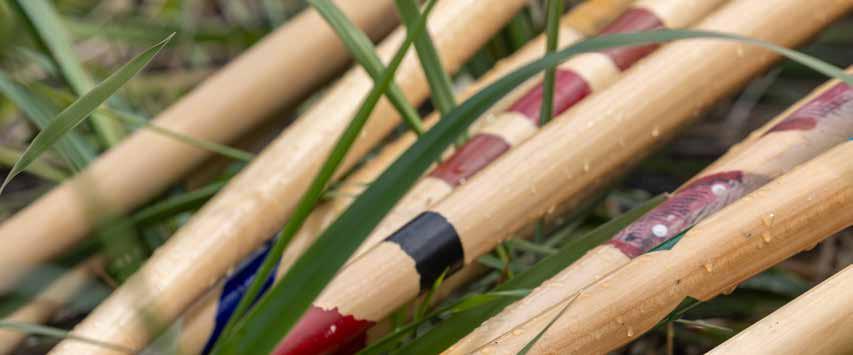
Craig, AK
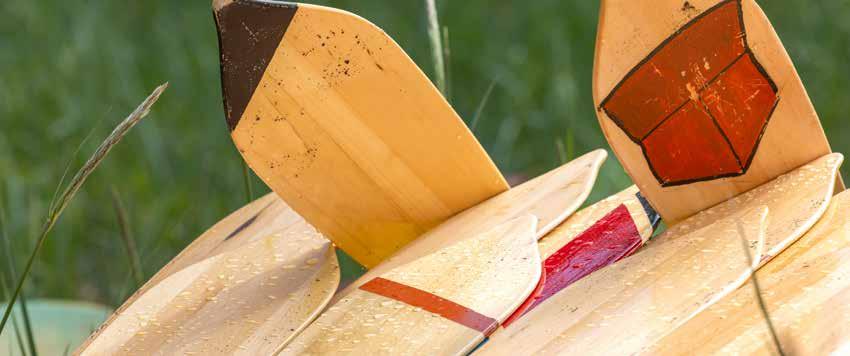
Haines, AK
Hydaburg, AK
Juneau, AK
Kake, AK
Ketchikan, AK
Petersburg, AK
San Francisco, CA
WA
Sitka, AK
Skagway, AK
Other Communities
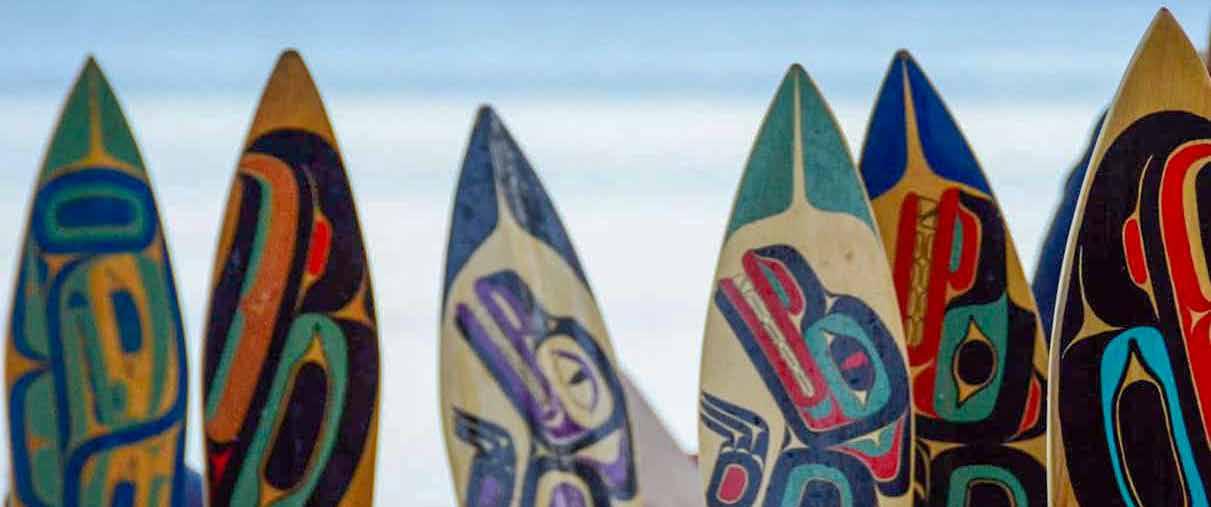
SECURING OUR FUTURE Tribal Enterprises
Tlingit & Haida is dedicated to creating tribal enterprises that reflect of our traditional tribal values. By supporting our tribal enterprises, you are helping to economically diversify the Tribe’s revenue streams.





Alaska Seafood Company
5731 Concrete Way
Juneau, Alaska 99801
Phone: 907.780.5111
Little Eagles & Ravens Nest
8001 Glacier Highway
Juneau, Alaska 99801
Phone: 907.463.7776
Elizabeth Peratrovich Hall
320 W. Willoughby Ave.
Juneau, Alaska 99801
Phone: 907.463.7777
Generations Southeast
Juneau Campus
3239 Hospital Drive
Juneau, Alaska 99801
Phone: 907.463.7375
Generations Southeast
POW Island Campus
6565 Boundary Rd.
Klawock, Alaska 99925
Phone: 907.463.8019
The Gathering Place
360 Lutak Road
Haines, Alaska 99827
Phone: 907.314.0466
Driftwood Lodge
435 W. Willoughby Ave.
Juneau, Alaska 99801
Phone: 907.586.2280

Sacred Grounds
320 W. Willoughby Ave.
Juneau, Alaska 99801
Phone: 907.463.7770




SOUTHEAST GENERAL CONTRACTORS

Tlingit & Haida


Sacred Shine 1721 Anka Street
Juneau, Alaska 99801
Phone: 907.463.7775
Shop Tlingit & Haida
320 W. Willoughby Ave. Juneau, AK 99801
Phone: 907.463.7122
Smokehouse Catering
320 W. Willoughby Ave. Juneau, AK 99801
Phone: 907.463.7122
Smoke Signals PO Box 25500
Juneau, AK 99802
Phone: 907.463.7760
Southeast General Contractors
2631 Channel Dr. Juneau, Alaska 99801
Tidal Network PO Box 25500
Juneau, AK 99802
Phone: 907.463.7966
Tlingit & Haida Bingo
320 W. Willoughby Ave. Juneau, AK 99801
Phone: 907.463.7760
Tlingit Haida Tribal Business Corporation
20700 44th Ave. Ste 220 Lynnwood, WA 98036
Phone: 888.295.4404
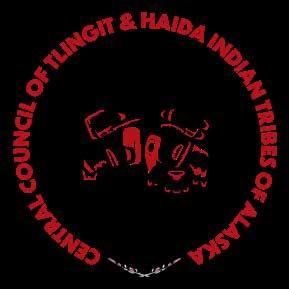
Mission
Preserve our sovereignty, enhance our economic and cultural resources, and promote self-sufficiency and self-governance for our citizens.
Vision
Prosperous, healthy Tribe and tribal citizens who thrive culturally, spiritually and economically.
